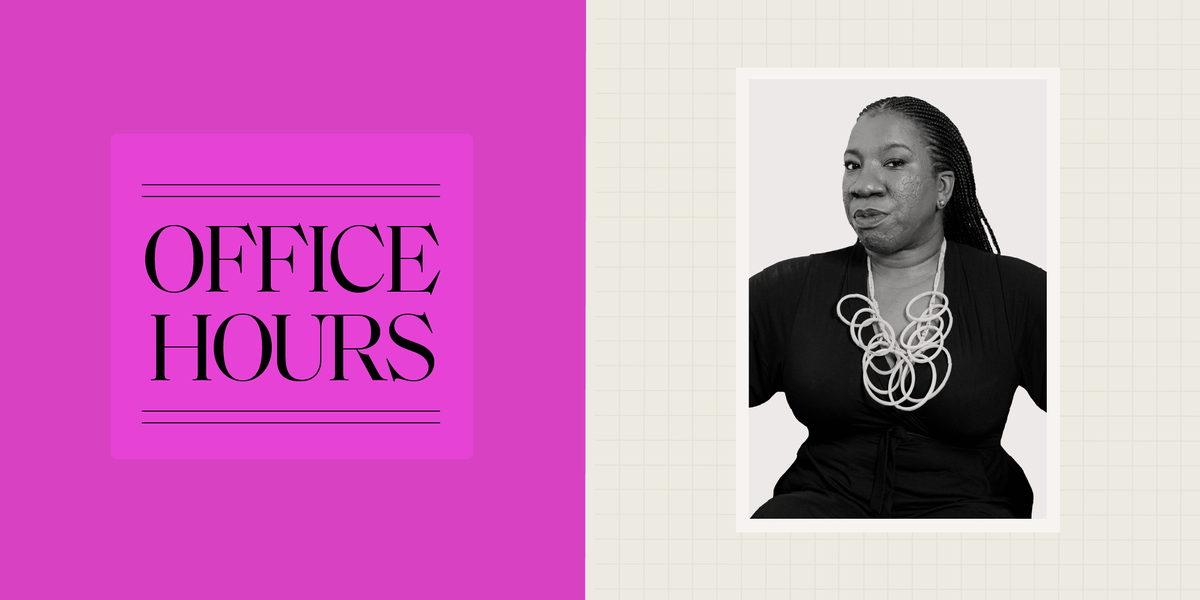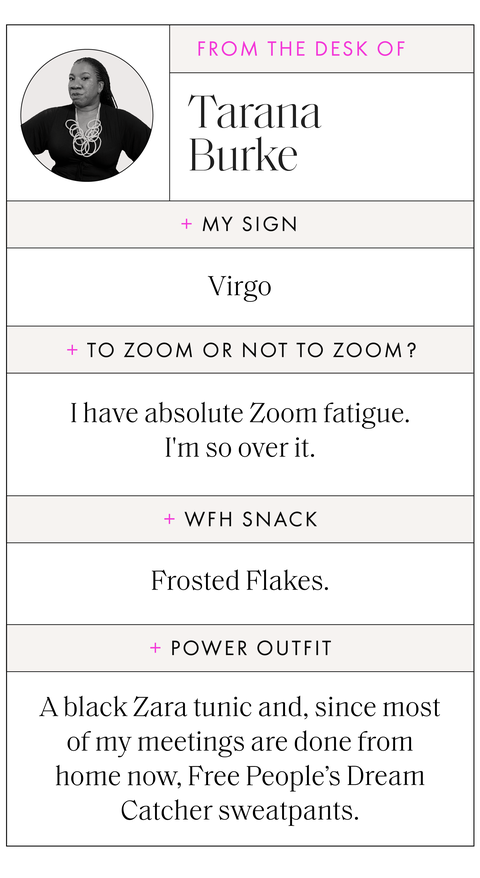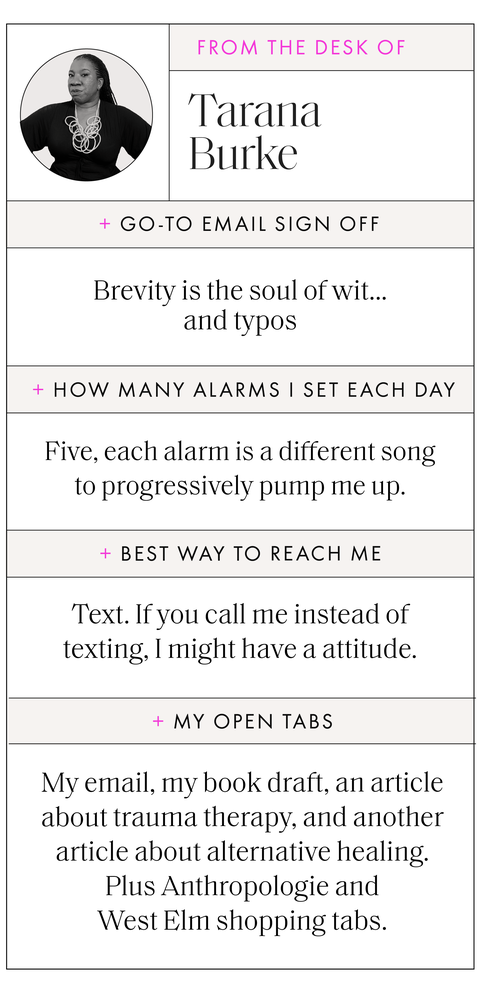In ELLE.com‘s monthly series Office Hours, we ask people in powerful positions to take us through their first jobs, worst jobs, and everything in between.
Before the #MeToo movement went viral in 2017, Tarana Burke had been using the hashtag for more than a decade in her fight to end sexual violence. The Bronx-born social justice activist coined the phrase back in 2006 while working with survivors, mainly young women of color, to create systemic change and help them heal.
When news of Harvey Weinstein’s sexual abuse allegations broke, Burke’s slogan unified Twitter users, who used it to share their own experiences of rape and sexual assault. Within a few weeks, the hashtag #MeToo was shared more than 12 million times, leading to an extraordinary outpouring of support for survivors online—and a newfound accountability for those in power. Burke was surprised, but she utilized her new platform to create resources for and speak out on behalf of the women she’d spent decades fighting for.
Below, Burke reflects on her journey to become one of the country’s leading voices on sexual assault, and the more inclusive future she envisions for #MeToo.
My very first job
I was 11 and my grandfather asked me to clean his car. You might be thinking, “That’s not a real job!” But hear me out. My grandfather wanted to teach me about money, so he paid me to vacuum, wash, and wipe-down his black and tan van for $20. When I finished, he gave me an envelope with my name and social security number on it. He took out money for “taxes” and wrote my social security number on the envelope, so I would memorize it. I call it my first “unofficial” job, because it was a kind-of foray into money management.
The job I never want to have again
In college, I worked at The Limited. They put me on the floor, which was fine, because I love clothes. But on my second day, a really snooty woman came in and asked for my help. She tried on so many outfits that were clearly the wrong size, and kept calling me by the wrong name, like “Tyra” or “Tamara.” Finally I suggested a different size. “Get your manager!” she screamed at me. I went to tell my supervisor, but instead I asked her, “Can I take my lunch break now?” Then I gathered my things and left. As far as I know, that lady is still in the dressing room — because I never came back.
The most rewarding part of my job
My interactions with survivors. There are people who reach out and say our work has helped them heal. For any trolling we get or angry emails we received, those positive endorsements from people whose lives we touch makes it all worth it.
The key advice I give to young activists
There’s no secret formula to being an activist. I want to demystify the idea that being a part of a movement requires a special skill or gift. It’s all about where your passions lie. Get into activism because a particular thing moves you. Explore, follow that passion, and don’t be afraid to change it.
My proudest accomplishment
We recently introduced Act Too, an activism recommendation-engine. It is a platform you engage with that recommends things to do based on your own interests to help end sexual violence. These are very tangible actions and micro-actions, like following campaigns or signing up for trainings. We can recommend organizations to donate to or where to volunteer at, based on your passions. We also recommend books and podcasts. There’s so many things you can do to help out. Even if you’re not on the front lines, marching and protesting and campaigning, there’s still work to be done. Sexual violence won’t end until people change how they engage with the very idea of sexual violence and what they understand about it. We won’t dismantle rape culture unless people understand what it is. Every action matters.
What the future of #MeToo looks like
I hope people can move away from the idea that it’s more than just a hashtag to take down powerful white men, and understand it’s about shedding light on the global pandemic that is sexual violence. It’s about doing the work to eradicate sexual violence, while also supporting the people who have experienced it. We will work closely with other organizations, like Black Lives Matter and the National Domestic Workers Alliance, because sexual violence is the common thread that runs through almost all social justice issues. We also want to continue to contribute to national conversations, work in communities, and lead the charge to create change.
This interview has been lightly edited and condensed for clarity.
This content is created and maintained by a third party, and imported onto this page to help users provide their email addresses. You may be able to find more information about this and similar content at piano.io


